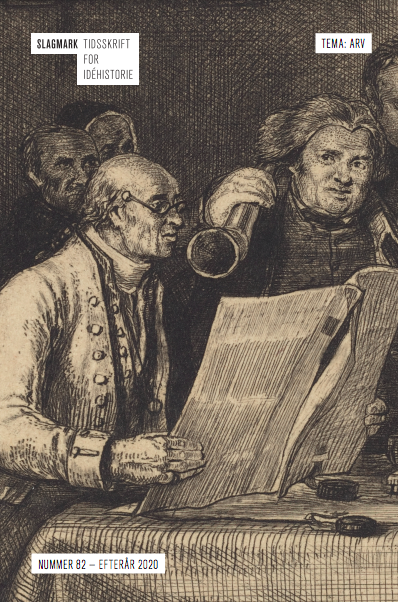Howards Ends’ åndelige arving: Arv og umistelig ejendom i E. M. Forsters Howards End (1910)
DOI:
https://doi.org/10.7146/slagmark.vi82.141050Keywords:
Howards End, inheritance, inalienable wealth, inequality, objectsAbstract
When E. M. Forster published the novel Howards End in 1910, it was at the height of ‘the inheritance society’, and the gulf between rich and poor was great and problematic; a fact that Forster was very well aware of. Yet in spite of this, the main character in Howards End, Margaret Schlegel, is a financially independent rentier living off of the wealth of her ancestors, and her wealth increases when she is named the ‘spiritual heir’ of Ruth Wilcox and thus inherits the house of Howards End. In this study, I argue that Forster shifts the focus from inherited money to inherited values in order to pardon a society of great inequality. Drawing on an aristocratic principle, Forster thus deals with inheritance as an inalienable and spiritual subject
rather than as a legal and economic one.





